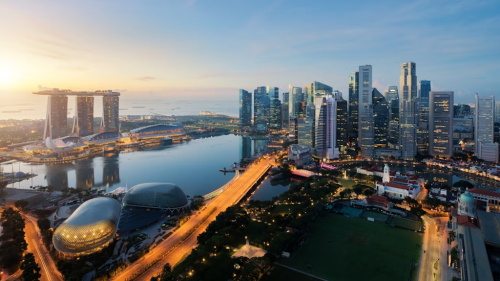Singapore Family Office Rules Tighten: $20M Minimum Entry

In the context of economic globalization, family offices have increasingly become the “wealth stewards” of high-net-worth individuals worldwide. From British industrial tycoon James Dyson to hedge fund legend Ray Dalio and Hong Kong billionaire Li Ka-shing, many have chosen Singapore as the base for their family offices. According to data at the end of 2024, Singapore has attracted over 2,000 family offices—an increase of more than 40% from the previous year. This rapid expansion of the “billionaires’ club” has prompted the Singaporean government to rethink its policy direction.
Why Are Family Offices Drawn to Singapore?
A family office is an entity that offers one-stop services to ultra-wealthy individuals, including wealth management, estate planning, tax optimization, and immigration planning. For high-net-worth families, a family office is not just a financial tool but a crucial platform for ensuring family stability and intergenerational legacy.
Singapore originally implemented an attractive incentive regime, granting tax exemptions to qualifying family offices and tying them to residency planning, which encouraged many wealthy individuals to transfer their assets to the city-state. Especially amid growing political and economic uncertainties in China and other parts of Asia, Singapore’s stability, low taxes, and strong rule of law made it a safe haven for family wealth in the region.
Policy Tightening: $20M Minimum Investment Requirement
However, with the surge in numbers and the emergence of so-called “fake family offices for immigration purposes,” the Singaporean government rolled out new regulations in 2024 to tighten the eligibility criteria. Key changes include:
- A minimum AUM (Assets Under Management) of SGD 10 million (approximately USD 7.77 million), increasing to SGD 20 million within two years;
- At least 10%, or SGD 10 million, of assets must be invested in Singapore’s local market;
- The SGD 50 million investment under the Global Investor Programme (GIP) must now be allocated only to Singapore-listed stocks—no longer allowed are real estate, REITs, or business trusts;
- Permissible investment products include SGX-listed securities, funds issued by locally licensed managers, and equity stakes in Singapore-based companies or startups.
In other words, Singapore no longer allows low-volatility assets like real estate to fulfill family office investment requirements—raising both the operational difficulty and risk for wealth owners used to stable returns.
Why the Policy Shift?
In 2018, Singapore had only 27 family offices. That number has since skyrocketed to over 2,000, thanks in large part to previously “easy entry” policies. But problems followed.
First, although many offices were established, their investments were globally diversified, with little capital actually flowing into Singapore. Many were minimally staffed and created few local jobs. Second, public concern has grown over the impact of ultra-wealthy arrivals driving up housing prices—particularly as local residents face increasing pressure in the property market.
In addition, a major money laundering case in 2023—amounting to SGD 20 billion—sent shockwaves through Singapore, raising serious concerns about the loopholes in financial oversight and the role family offices may have played in facilitating illicit capital inflows. Many of the suspects had gained entry via family offices or asset planning routes, exposing regulatory and AML (Anti-Money Laundering) gaps in the sector. This scandal undoubtedly heightened the government's awareness of the potential risks associated with the family office boom.
What’s Next for Family Offices?
The updated regulations mark a significant shift in how Singapore manages and oversees its family office landscape, prompting a potential reconfiguration of strategies and operations among wealth holders. Previously, many wealthy individuals would invest modestly in REITs to ensure cash flow, with minor allocations to equities to satisfy GIP requirements while managing risk. Now, with the SGD 50 million requirement confined to stocks, volatility increases—and conservative investors may hesitate to proceed with GIP or may instead consider other immigration routes like Australia or the UK.
In the short term, the policy could boost capital inflows into Singapore’s stock market—especially into blue-chip stocks, as GIP applicants have fewer investment choices.
Looking ahead, a key issue will be whether Singapore’s stock market offers enough appeal in terms of size, liquidity, and returns to retain and attract high-net-worth investors. If the ultra-wealthy view it as too small, illiquid, or underperforming, enthusiasm for setting up family offices may wane. In other words, policy alone cannot dictate where capital flows—market vitality and returns will be decisive.
Attracting People or Attracting Money?
Singapore is now striving to strike a balance between “drawing in global wealth” and “protecting local interests.” In recent years, it opened its doors to capital with liberal policies. Now, it’s fine-tuning the rules to ensure this wealth genuinely benefits the local economy—a subtle but strategic policy recalibration.
Looking ahead, Singapore is no longer content with merely being a “passageway for the rich.” It wants to become a meaningful player in global capital markets. For those truly committed to long-term growth and investing in Singapore’s future, the message is clear: you’re welcome here—if you’re ready to settle in, invest deeply, and become part of the local ecosystem.
Recommended for you



